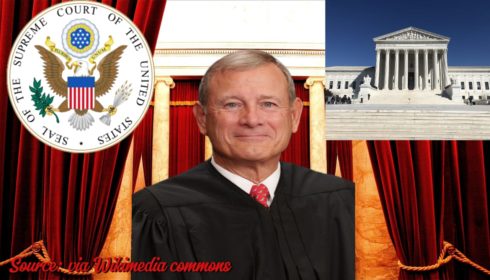U.S Supreme Court has dealt a devastating blow to America’s homeless population, ruling that cities can ticket individuals for sleeping outside even if no shelters are available. The case centered on “anti-camping” ordinances in an Oregon city that prohibit people from sleeping in public with “bedding,” including sleeping bags or even balled-up clothing. Each violation carries a hefty fine, and repeated offenses can lead to jail time.
This decision marks a cruel turn in the country’s approach to homelessness, prioritizing punishment over support. The ruling ignores the reality that sleeping outside is often the only option for those struggling to get back on their feet. By criminalizing a basic human necessity like sleep, U.S Supreme Court has effectively declared war on the most vulnerable members of society.
U.S Supreme Court Sides with City, Against Homeless
In a 6-3 decision, U. S Supreme Court sided with the city, upholding the “anti-camping” ordinances that have been criticized as “cruel and unusual.” The conservative justices united to crush the hopes of homeless individuals, while the liberal justices opposed the ruling. This decision highlights the stark divide between U. S Supreme Court’s ideological wings and their differing views on social justice.
The ruling’s implications are far-reaching and devastating. Homeless individuals will now face fines and potential jail time for simply trying to survive. Instead of addressing the root causes of homelessness, U.S Supreme Court has chosen to punish those who are already struggling. This decision is a stark reminder of the need for a more compassionate approach to social issues.
Sotomayor Slams Ruling as “Unconscionable and Unconstitutional”
Justice Sonia Sotomayor penned a scathing dissent, condemning the ruling as “unconscionable and unconstitutional.” She emphasized that sleep is a biological necessity, not a crime, and that punishing homeless individuals for sleeping outside is cruel and inhumane. Sotomayor’s dissent was so impassioned that she read it from the bench, a rare move that highlights her deep disagreement with the majority opinion.
Sotomayor’s words are a powerful indictment of U. S Supreme Court’s decision. By equating sleep with breathing, she underscored the essential nature of both and the absurdity of criminalizing them. Her dissent serves as a beacon of hope for those who believe in a more just and compassionate society.
Ruling Will Worsen Homelessness Crisis
U. S Supreme Court’s decision will only exacerbate the homelessness crisis in America. By criminalizing homelessness, cities will drive vulnerable individuals further into poverty and despair. This ruling ignores the complex issues surrounding homelessness, such as lack of affordable housing, mental illness, and addiction. Instead of addressing these underlying problems, U. S Supreme Court has chosen to punish the symptoms.
The long-term consequences of this ruling will be dire. Homeless individuals will face increased hardship, and cities will waste resources on fines and incarceration rather than investing in supportive services and affordable housing. This decision is a stark reminder of the need for a more nuanced approach to homelessness, one that prioritizes empathy and understanding over punishment and blame.
Conservatives Prioritize Punishment Over Support
U.S Supreme Court’s ruling reflects a broader trend in conservative ideology, which prioritizes punishment over support and compassion. Rather than addressing the root causes of homelessness, conservatives seek to criminalize and stigmatize vulnerable populations. This approach ignores the fundamental humanity of homeless individuals and perpetuates a cycle of poverty and despair.
U.S Supreme Court’s decision is a stark reminder of the need for a more compassionate approach to social issues. By prioritizing support over punishment, we can work towards a society that values the dignity and worth of all individuals, regardless of their housing status.
Liberals Slam Ruling as “Cruel and Unusual”
Liberal justices and advocates have slammed U. S Supreme Court’s ruling as “cruel and unusual,” highlighting its devastating implications for homeless individuals. The ruling’s opponents argue that criminalizing homelessness is unconstitutional and inhumane, and that U.S Supreme Court has abandoned its duty to protect vulnerable populations.
The backlash against the ruling is a testament to the enduring power of empathy and compassion in American society. As the country grapples with the consequences of this decision, it is clear that the fight for a more just and equitable society is far from over.














